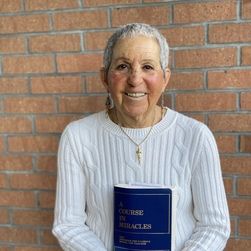This topic examines the characteristics of Truth versus those of perception and the implications this has on our daily lives.

Everything we call real is made of things that cannot be regarded as real. – Niels Bohr
Key ideas in our experience are: Truth, Reality, Peace, Love, Joy and Happiness. Therefore, let us work together bringing into our awareness the characteristics of Truth & Reality.
- How would we know if we were dealing with Truth and Reality?
- What would we look for?
- What characteristics would be inherently present?
During a workshop involving 20 participants, we explored these very questions and after a few hours of intensive dialogue we concluded the characteristics of Truth/Reality would be as noted on the following chart. Let us use this chart as a guide for further examination.
Changeless:
If we are dealing with Truth/Reality it cannot change. It does not matter whether the change occurs within seconds or over millions of years, if our experience changes (now this, now that) we have not been, and are not now, dealing with Reality/Truth.
Formless:
If we are dealing with form, which inherently changes, we are not dealing with Reality/Truth.
Perfection:
Any experience of lack or imperfection is a sign you are not experiencing Reality.
Eternal:
An experience which does not last forever and seems to change, an experience we describe as time, is illusion not Reality. Einstein showed that our experience of time is not absolute (the same for all observers) but is relative to the state of motion of the observer.
Knowledge/Truth:
If my experience is inconsistent, fragmented and uncertain, I am not experiencing Truth/Reality. Reality has no opposing elements or characteristics. Everything in the world of perception has a complimentary aspect (the world of perception is a world of opposites).
Extension:
An extended idea has not left its source and therefore cannot be in conflict with it. A projected idea also has not left its source, however, this is denied and the idea is perceived as if it occurred "outside" the mind of the one who projected it: This is why we are "NEVER UPSET FOR THE REASONS WE THINK." (L 5 ACIM).
Love-Joy-Happiness-Peace:
In Reality there is no experience that does not express these feelings. "Relative" peace, love, joy, happiness are forms of fear masquerading as peace, love, joy, happiness.
Innocence:
The innocent have nothing to fear. They are experiencing truth, and guilt has no justification to enter their mind. Any feeling other than peace is a form of guilt caused by mistaken ideas about yourself and world. When the mind dissociates from truth, guilt will be experienced in all of its fearful forms: anger, depression, embarrassment, boredom, impatience, anxiety, frustration, conflict etc. "Where guilt has entered Reality has slipped away."
Unity:
Reality is inherently unified as illusions are inherently dualistic. The emotions associated with Reality/Unity can only be peace, love, joy, and happiness because only these can stand on their own. They come from within, needing nothing else for their existence. All true beings come from love because they are love. On the other hand, the emotions associated with illusion/duality are always some form of fear because fear cannot stand on its own---I need something/one to be afraid of in order to justify my fear.
Certainty:
When you experience Reality, there is no doubt.
Whole:
Reality is total awareness. Nothing is left out, therefore no one can lose.
Truth:
Truth does not change. Truth needs no defense. Truth merely is. In the state of Truth there is no fear.
Unified Mind:
This is the state of Mind where conflict is impossible.
Having examined the characteristics of Reality/Truth we then looked at the characteristics of perception and the following comparative chart was developed.
Characteristics of Perception
As you look at the following chart, which characteristics reflects your moment by moment everyday experience? Search your mind very carefully and honestly. Can you find anything in your daily experience which has the characteristics of Truth/Reality? Take at least a few moments for this search.
Characteristics of Reality/Truth versus Perception
| REALITY/TRUTH | PERCEPTION |
|---|---|
| CHANGELESS | CHANGE |
| FORMLESS | FORM – IMAGE |
| PERFECTION | RELATIVE |
| ETERNAL | TEMPORARY |
| KNOWLEDGE - TRUTH | BELIEF - ILLUSION |
| EXTENSION | PROJECTION |
| PERFECT PEACE, LOVE, JOY | RELATIVE PEACE, LOVE, JOY |
| INNOCENCE | GUILT |
| UNITY | DUALITY |
| CERTAINTY | DOUBT |
| WHOLE | PARTIAL |
| TRUTH | INTERPRETATION |
| UNIFIED MIND | SPLIT MIND |
Is it not true that one-hundred percent of your daily experiences fall into the perceptual domain of awareness including, of course, your experience of reading this topic? All of the ideas we will be exploring rest too heavily on this realization for you to continue without careful examination of the above.
Whenever I have examined this idea with others they have concluded that indeed one-hundred percent of their daily experiences are perceptual in nature.
"What does all this mean?" you may be thinking. "So what?!" Let me assure you that what is at stake is nothing less than your moment by moment experiences in the world.
Intellectually you may realize that you are never dealing with Reality/Truth in your daily experiences. However, if you are not joyous you are not living your life from that awareness. If you respond to anything with drama/charge (emotional state of fear however small or great), at that moment you are believing that you are dealing with the Truth/Reality of the situation. Well, you may say, "It is the Truth/Reality as I perceive it." This statement is self-contradictory and must be carefully examined.
The very expression: "Truth and Reality as I perceive it" is an oxymoron. Languaging such as this has a very powerful psychological effect. The dominant idea is "Truth and Reality" and "as I perceive it" fades deep into the recesses of my consciousness, barely noticeable. Let's apply it to a situation and observe the results of this self-contradictory statement.
"The truth as I perceive it," gets its meaning from me, the one who perceives. "Objective" truth, on the other hand, is not subject to interpretation, it is absolute (the same under all circumstances for all people everywhere). If we are not willing to entertain the idea of light as a wave, the potential for the experience is possible, however the actual experience is dependent on our mind's willingness to entertain such a possibility. Likewise, if we don't entertain the possibility that light is a particle, the mind has no reference for meaning or possible interpretation as such. The potential for the awareness is always possible but the awareness itself is, again, dependent on our willingness to entertain such a possibility. If I actually perceive The Truth and Reality of situations (the way they really are) my ideas about them would not affect my experience. It would always be the same for me and everyone else.
There is no perceptual experience that is not subject to this dynamic, and all of our experiences in the world are perceptual!
You may say: "Well I saw what he/she did and that caused my feelings."---You may have seen what someone did, however, your perception was based on your interpretation of the situation, and seen from another perspective, had the potential for being perceived differently. This is why two people, though perceiving the same situation, may have very different experiences and therefore, their reaction/response is different.
Lest you believe there is an exception to this, remember that "being right:" (Light IS a wave), does not preclude the possibility of another interpretation: (Light IS a particle), when viewed from a perspective where such an experience is possible. Those who use the familiar comment: "Do you want to be "right" or do you want to be happy?," are aware of this important distinction between Reality and perception or appearances.
I realize appearances may and usually do justify my negative emotional reactions (I am right). However, upon deeper investigation I have, without exception, realized the real cause of my negative emotional reaction was not the situation (form) but something within myself that was hidden from my awareness and I mistakenly blamed on the situation. I was therefore able to respond to the real cause of my negative reaction and appropriately respond to the situation.
If the bottom line is "being right," we indeed get to be right with all the attendant negative emotions. However, if the bottom line is experiencing peace of mind, that is the goal I will pursue and everything will be perceived as an opportunity to that end. The potential for peace shifts to an actuality. All negative emotions have the potential to be resolved if I am willing to entertain the idea that my mind is very powerful and within myself lies the potential for undoing ALL forms of fear. The resolution of fear lies in the recognition of the conditions in which fear arises and therefore its undoing.

Comments